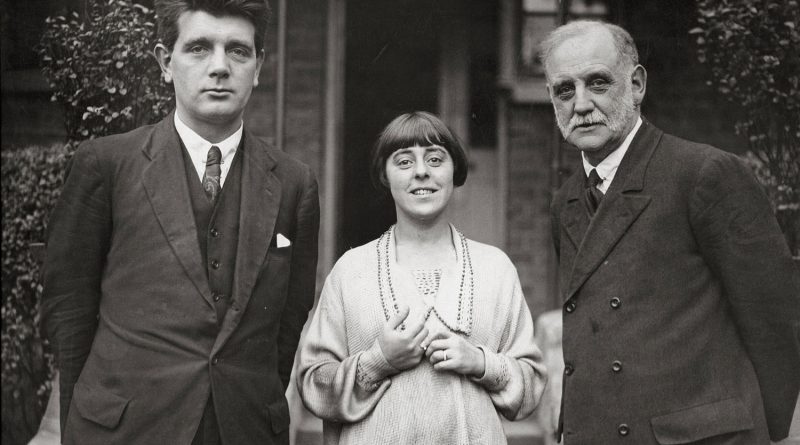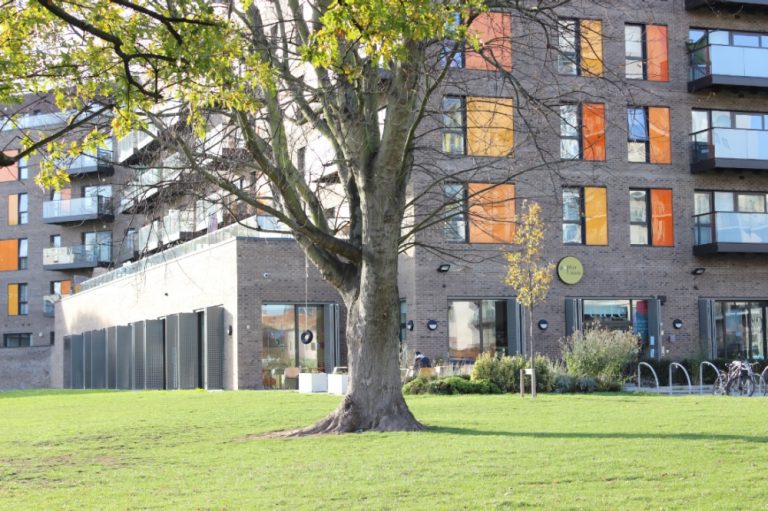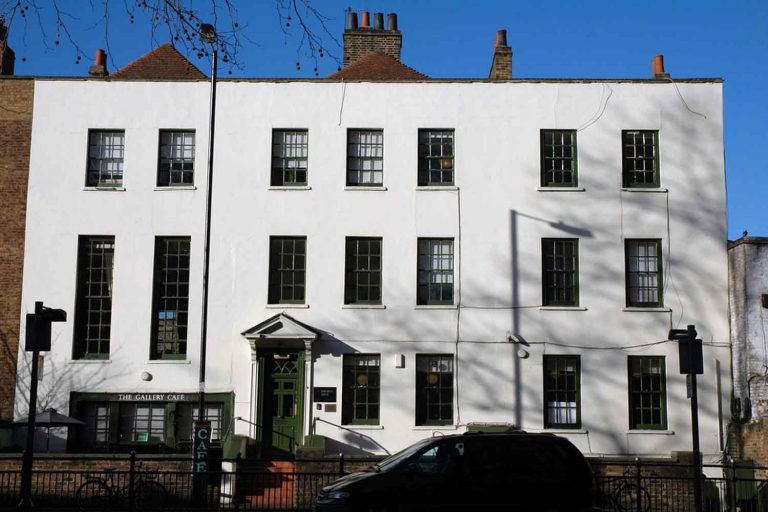Minnie Lansbury and the Clock on Bow Road
You may have noticed the clock on Electric House on Bow Road, but were you aware of the woman it is there to memorialise? Born in 1889, to a Jewish bootmaker who later became a coal Merchant, Minnie Lansbury was a suffragette and was also an Alderman the first Labour-led council in the Metropolitan Borough of Poplar.
In 1913 she worked with Sylvia Pankhurst, Julia Scurr, Keir Hardie and her future father-in-law, George Lansbury, to establish the East London Federation of Suffragettes. She was also a member of the Women’s Freedom League, which worked to demand and establish the vote for women. Minnie went on to marry Edgar Lansbury in 1914, who was the son of George Lansbury (the future mayor of Poplar and later the leader of the Labour Party).
Minnie Lansbury and Activism
Her socialist background and the people she chose to surround herself with – left-wing politicians that purported and defended the views and rights of the common people – paved the way for a life of activism. She became a teacher in 1911 but left after joining the committee of the East London Federation of Suffragettes in 1915.
She was also chairman of the War Pensions Committee, fighting for the rights of widows, orphans and wounded from World War I. She was elected alderman on Poplar’s first Labour council in 1919, before women received Parliamentary suffrage.
In 1921 Minnie was jailed for six weeks. Her role on Poplar Council presented her with an apt spot to deliver her views and defend the poor of the area. It was because of this, and specifically her refusal to levy full tax rates on poverty stricken poplar, that she landed in prison, along with with 29 of her colleagues (four women and 25 men) who carried similar viewpoints.
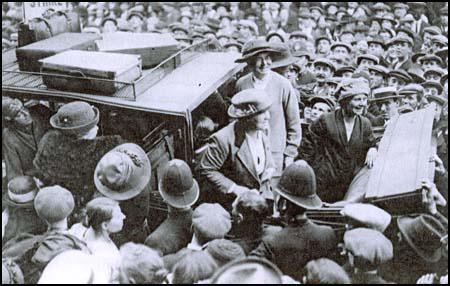
Jeannie MacKay, Susan Lawrence and Nellie Cressall at the front of the car.
She was famously quoted as saying, ‘I wish the Government joy in its efforts to get this money from the people of Poplar. Poplar will pay its share of London’s rates when Westminster, Kensington, and the City do the same.’
In prison, she was poorly treated. She developed pneumonia two months after her release and died prematurely in 1922 at the age of just 32. Her grave can be found in East Ham’s Jewish Cemetery. After her death, her husband went on to marry actress Moyna Macgill. They had a daughter – the now renowned theatre and television actress, Angela Lansbury.
After her death, her father in law, George Lansbury said, ‘Minnie, in her 32 years, crammed double that number of years’ work compared with what many of us are able to accomplish. Her glory lies in the fact that with all her gifts and talents one thought dominated her whole being night and day: How shall we help the poor, the weak, the fallen, weary and heavy-laden, to help themselves? When, a soldier like Minnie passes on, it only means their presence is withdrawn, their life and work remaining an inspiration and a call to us each to close the ranks and continue our march breast forward.’
Minnie Lansbury Memorial Clock
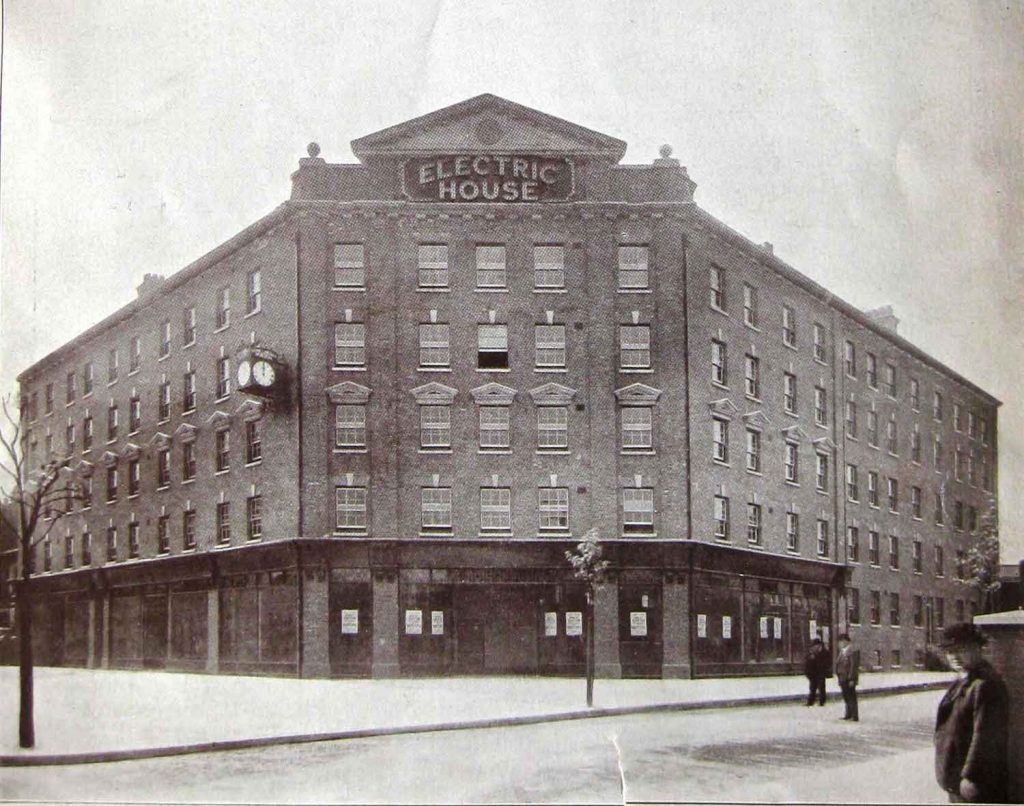
The Minnie Lansbury Memorial Clock in Tower Hamlets that was first installed in the 1930s, to celebrate and remember the tenacity with which Lansbury defended the poor of the East End.
In 2008 the clock was restored and re-fitted on Electric House thanks to a huge public appeal organised by the Jewish East End Celebration Society and the Heritage of London Trust. £13,000 was raised as part of the appeal while Angela Lansbury – the daughter of Minnie’s husband Edgar Lansbury – also gave a generous donation towards the restoration. The green and gold clock on Bow Road has stood as a symbol of this bold and courageous East End woman ever since.
A special thanks goes to Janine Booth.

